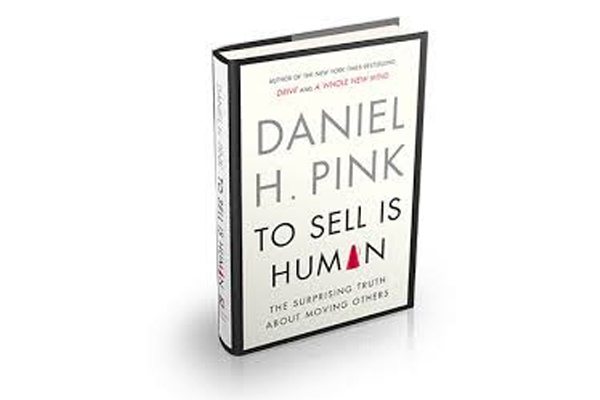A few weeks ago, I found myself in the most ordinary yet profoundly insightful setting, a crowded Mumbai local train. It was the classic scene you might expect. People squeezed into every available seat, some standing, swaying gently to the rhythm of the train as it moved steadily toward its destination. Most passengers wore expressions of quiet resignation, perhaps mentally preparing themselves for the day ahead or simply stealing a rare moment of calm amidst their bustling routines.
What unfolded next offered me a remarkable lesson about influencing others, a lesson that vividly echoed the insights from Daniel Pink’s illuminating book, “To Sell Is Human.”
Scene One: The Wallet Seller
Table of Contents
A young man rose from his seat, holding a handful of wallets, and began making his pitch. He described his product using clichés that might have been rehearsed countless times before. His words, though loud enough to reach everyone in the compartment, lacked sincerity. There was a noticeable absence of enthusiasm or conviction in his voice. It seemed as though he was just going through the motions, detached from his audience.
Passengers around me remained indifferent. Some pretended not to notice him, while others stared blankly ahead. The seller continued his monotonous speech for a few minutes, but soon the train arrived at Bandra station. Quietly, he stepped off and disappeared into the bustling crowd on the platform. Not one wallet sold, not one impression made.
Scene Two: The Enterprising Eunuchs
Just as the wallet seller left, two vibrant, colorfully dressed eunuchs entered the same compartment. They began addressing the passengers directly, using humor, wit, and an unmistakably personal touch. Their arrival instantly shifted the energy in the compartment. Some passengers pulled out their phones, others quickly engaged in conversations, and still others simply closed their eyes. But the newcomers knew precisely how to get attention. They tapped people gently on their heads, blessed passengers with warmth and humor, and directly yet cheerfully requested money.
Not everyone responded positively. Many turned away or frowned, yet the eunuchs maintained their buoyancy and enthusiasm. Their smiles never faltered, even when their requests were ignored. They moved swiftly, sensing precisely when to linger and when to move on to the next person. Their resilience was remarkable. Eventually, their energy translated into results, as some passengers reached into their wallets and handed over spare change.
The contrast between the wallet seller and the eunuchs left a lasting impression on me. One was selling without passion, while the others were influencing with pride.
Connecting the Dots with “To Sell Is Human”
The powerful juxtaposition I witnessed on that train ride came sharply into focus when I read Daniel Pink’s book, “To Sell Is Human.” The book reshaped my understanding of selling, teaching me that to sell is not merely a commercial act. It is fundamentally a human one. According to Pink, selling is essentially about moving people emotionally, psychologically, and intellectually.
Pink argues compellingly that we all spend our days selling, even if our job title does not explicitly include the term “sales.” Whether we are educators, facilitators, leaders, managers, or employees, we are constantly persuading, negotiating, and influencing others. Pink identifies several key attributes that help us excel at this human endeavor, two of which particularly resonated with my experience on that local train: Attunement and Buoyancy.
The Power of Attunement
Attunement, Pink explains, is the ability to align oneself with others, to understand and respond to their feelings and perspectives. It requires active listening, genuine empathy, and the capacity to read subtle emotional cues.
Reflecting back on that train experience, I realized how perfectly the eunuchs embodied this principle. They quickly assessed each passenger’s body language and facial expressions, intuitively knowing whom to approach and how to tailor their interactions. Their attunement allowed them to make meaningful connections, even in brief exchanges.
In my own role as a facilitator, attunement is crucial. Workshops thrive when I am fully tuned in to participants’ energy, responses, and even silences. Learning how to read a room, sensing when to pause, when to probe deeper, or when to lighten the atmosphere, makes all the difference between a session that is merely informative and one that is genuinely transformative.
Workplace Takeaway:
True leadership and facilitation depend heavily on your ability to attune yourself to others. Whether you are in a meeting, delivering a presentation, or managing a team, reading emotional and social signals can dramatically improve your influence.
Also Read: Helping Employees Find Their True Potential
Building Your Buoyancy Quotient
The second concept, Buoyancy, is about developing resilience in the face of rejection and setbacks. Pink describes it as staying afloat, maintaining enthusiasm and optimism even when results do not immediately follow.
This resilience was vividly demonstrated by the eunuchs I encountered on the train. Despite frequent rejection, they remained upbeat, composed, and persistent. They knew rejection was part of the process. Each refusal did not diminish their spirit; it fueled their resolve to keep going.
As facilitators, trainers, and leaders, we face similar situations. Not every workshop is perfect. Not every idea is accepted immediately. Sometimes the feedback is tough, and it can be tempting to lose heart. However, developing buoyancy allows us to learn, grow, and return stronger every single time.
Workplace Takeaway:
Build your resilience intentionally. Remind yourself that rejection is not personal. Each “no” brings you closer to understanding how you can improve and better connect next time.
Also Read:5 Sources To Draw Resilience From
Practical Applications for the Corporate Environment
As a professional deeply involved in leadership and training programs, I believe that the principles from “To Sell Is Human” have profound implications for workplaces today. The skills of attunement and buoyancy are essential for anyone wanting to lead, influence, or inspire.
Here are some ways you might apply these lessons practically:
- Train your managers and leaders in empathetic communication. Equip them with skills to understand team dynamics deeply.
- Develop workshops around resilience and managing rejection. Encourage open discussions about challenges to normalize resilience-building.
- Create a feedback-rich culture where attunement and understanding become core values. Regularly ask your team what they need and genuinely listen.
My Personal Takeaway
Reflecting on both the book and my experience, I recognize a simple but powerful truth: selling is not about products. It is about people. It is about connection, understanding, and empathy. It is about being resilient enough to keep trying, keep adapting, and keep believing that the next interaction could be meaningful.
Pink’s book helped me reframe how I view everyday interactions, both at work and outside. Now, I consciously approach my sessions with heightened empathy and awareness. I also remind myself often that one negative response does not define my ability or my day.
Also Read: Why Communication Is An Important Leadership Trait
Final Thoughts: Why You Should Read “To Sell Is Human”
Whether you see yourself as a salesperson or not, Daniel Pink’s “To Sell Is Human” offers insights invaluable for anyone wanting to communicate better, lead more effectively, and build genuine human connections.
Key Takeaways:
- Influence is fundamentally human. Everyone can learn to do it better.
- Empathy (Attunement) is your greatest influencing tool.
- Resilience (Buoyancy) determines your long-term success.
If you have not read it yet, consider making it your next read. And the next time you are in a position to influence, remember the lessons from that Mumbai local train. The eunuchs succeeded not because of what they were selling, but how they sold it. They connected, they persisted, and ultimately, they succeeded.
And in that simple lesson lies the secret of human influence.










